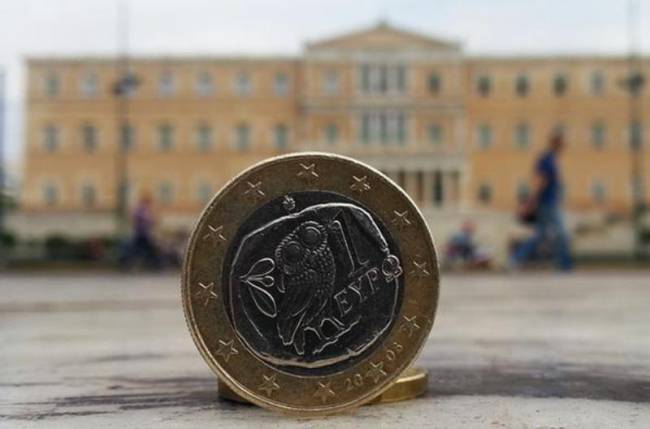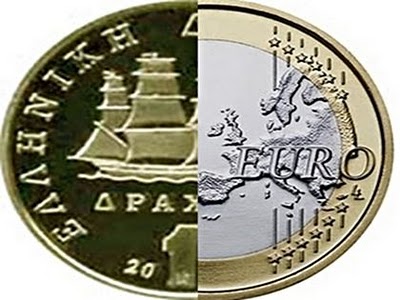Bloomberg View
Der Spiegel recently reported that German Chancellor Angela Merkel viewed Greece’s exiting the euro as a manageable risk that would present no existential crisis for the common currency. That opinion, if she indeed holds it, is misguided at best and dangerous at worst.
It’s true that Greece poses a less naked financial risk to the rest of the euro region than it did in 2009, when revelations about the true size of its deficit triggered the crisis. Today, only about a fifth of Greek government debts are owed to the private sector, courtesy of the country’s bailout by the European Union, the European Central Bank, and the International Monetary Fund. And borrowing by Greek companies accounts for less than 1 percent of loans made by Europe’s biggest banks, according to J.P. Morgan (JPM).
So it’s true that, if elections later this month produce a government prepared to default on its debts rather than continue with austerity, the financial repercussions will be limited. That says little, however, about the chaos that could accompany Greece’s departure from the euro. Contagion is never predictable.
Once inclusion in the currency pact is shown to be ephemeral—despite the EU’s insistence that membership is “irrevocable”—then other weak euro zone members will be vulnerable to speculation. Investors may be driven to short the bonds of Italy, Portugal, or Spain—no matter how strong the economic or political arguments against their leaving the currency union—pushing borrowing costs to levels they can’t afford.
To be sure, Der Spiegel’s report about Merkel’s intentions might not accurately reflect Germany’s attitude to a Greek exit. Joachim Poss, a German coalition lawmaker, said on Jan. 6 that the consequences would be “incalculable.” Nevertheless, the mere discussion of a potential fracture in the euro zone should be a warning to European leaders that their path to ever-closer union is anything but assured. The euro has slumped to its weakest value against the dollar since 2006. Although there are other factors involved, that decline is a reminder that investors aren’t keen on putting their money into a currency with an uncertain future.



















